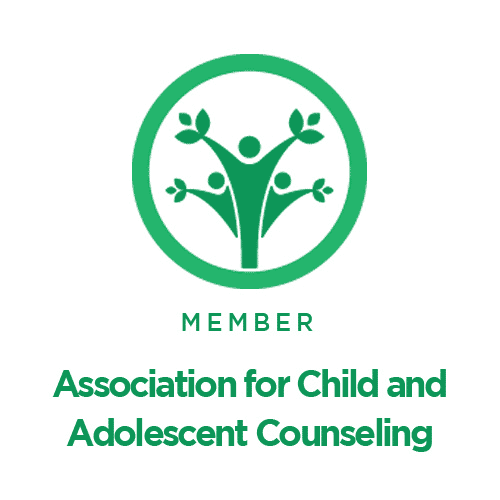Raising children is the hardest, best, and most important job one will ever do, yet it doesn’t come with formal training. You don’t have to pass emotional regulation 101 to have children. Even the most regulated parents will struggle in this area from time to time. So maybe we’ll just score by the average! On average, how often are you able to emotionally regulate yourself in front of your children? If you answered something like “not often”, I commend your honesty and self-awareness, it’s not easy to admit imperfection. I invite all the parents who struggle with emotional regulation to read on, IT CAN GET BETTER.
“My job as a parent is not to control my child’s emotions, my job as a parent is to control my own.” Shelly Robinson
Bottom line, we can’t expect children to regulate their emotions if the parent(s) are unable to regulate their own. It’s hard. Emotions can be contagious and letting out a good scream can be a source of stress relief for parents-- but it’s not going to help you or your child in the long run. And we need to focus on the long-term gains over short term relief.
Growing up with parents who struggled to regulate themselves was passed on, mental health conditions, or simply not having their own personal needs met are a few reasons parents have difficulty with emotional regulation. Many parents struggle in this area and even the most regulated parents have their days. Here are some tips on how to become a more emotionally regulated parent:
Basic Needs: As mentioned above, unmet parental needs often lead to a shortened fuse. Take a second to write down what your personal needs are. Now reflect on them, are they met? If you’re thinking, what parent truly has their needs met? I hear you and we’re not talking about going to get a formal massage-although great if you do! We’re talking about, are you fed? drinking water? Have you peed? —if you know, you know 😉, are you experiencing any physical pain?, Are you getting enough sleep?
If your basic needs are not met, you’re already susceptible to having difficulty regulating your emotions. We need to consider the same for our children when looking at their emotional responses.
Self-Care: The parasympathetic nervous system which is part of the body’s automatic nervous system is responsible for helping the body relax and restore balance. Self-care plays a crucial role in activating this system. An activated parasympathetic nervous system reduces the intensity of emotional responses. Exercise, massage, breathing, engaging in hobbies, mindfulness, and meditation all activate this system. Parents need to find the time to engage in self-care, it’s crucial to emotional regulation.
Check-in with yourself and make it a habit: People who are successful with emotional regulation can recognize their emotions and label them. How can one be responsible for knowing how to respond to a feeling if they can’t label it? If you grew up in a household where emotions were non-existent and stuffed down, you may need to work on this as part of your process. Freud says that our unexpressed emotions will come back up in uglier ways. You must deal with them. Counseling can teach you how to identify, label, and be okay with all emotions. Regardless of how you get there, learning to recognize your emotions needs to be practiced often to become a habit. How would an emotionally regulated parent react to this? Then act as if you are that person until you become it!
“Where there is anger, there is always pain underneath.” Eckhart Tolle: Anger met with anger equals more anger. Adding gasoline to a fire isn’t going to put it out quicker. It takes every ounce of patience to look at your angry, yelling, sometimes destructive child and show them some compassion in a moment of big feelings. I challenge you to swap your anger for curiosity when responding to your child. Most parents don’t respond to their angry child the same way they would to a child in pain. This is the problem. ANGER NEEDS TO BE MET WITH COMPASSION, EMPATHY, and UNDERSTANDING. Watch how quickly a situation can deescalate when you approach the pain instead of the anger.
Accept all emotions: Part of learning to regulate your emotions is to accept them. None of your emotions are wrong and nobody should be punished for having them, parents included. However, the way you act on your emotions may determine if there is a consequence. Parents need to not only see but communicate this to their children, so they don’t feel ashamed of their feelings. It’s both okay and healthy for a child to see their parents experience the whole range of emotions as long as they aren’t taking them out on the child or looking for them to comfort you-that’s not their job. A wide range of emotions need to be both expected and accepted in all relationships.
Take the time you need: Whether you or your child is experiencing a big emotional reaction, it’s always good to take the time needed to cool down. “I see you’re feeling really frustrated right now and I feel that way too when things don’t go my way. I’m going to give you some space but I’m here for you when you’re ready.” Keep the focus on the child’s feelings, not their behavior. You can talk about appropriate ways to handle problem behaviors later; it doesn’t help anyone to address them in the moment. Okay, so what does that have to do with parental regulation? Well, if you’re not self-regulated yourself, you likely won’t be able to get your child to take the time they need—which more times than not extends the argument.
Giving your child time to cool down gives you time to cool down. If addressing their feelings, in the moment, feels too much like an advanced skill, you can modify with just quietly walking away to get yourself together. You can then validate the emotion when you’re able. It’s all overwhelming but you can get there.
Develop a mantra: Even if you’re not Zen, you might find mantras to be helpful. “I can do hard things.” “I can do this.” “Emotions are temporary and will pass.” “It’s okay to feel _________, I’m human.” “I will allow myself to sit in the discomfort of my emotions.” Give it a try and see if it helps you regulate.
“I can and I will become better at emotionally regulating myself because I CAN do hard things.”
Self-reflect on your emotional regulation progress: I don’t care if you said one less bad word, yelled one less time in a day, acknowledged your own emotion, or went out for a bike ride -- you need to acknowledge progress and sit with good emotions. It’s too easy for parents to reflect on every shortcoming, reflecting on the good needs to be practiced intentionally and regularly. This goes for children too. Good feelings are the momentum we need to keep going.
Imagine your child having the worst emotional outburst ever and yourself with a regulated nervous system, talking calmly, and modeling every emotional regulation skill you have. A bit exaggerated but even a few of these skills make a huge difference! Remember, on your emotional regulation journey we are going for an average, not perfection. Let’s go parents, it’s time to break the cycle for yourself, your kids, and the generations to come! YOU GOT THIS 😉








